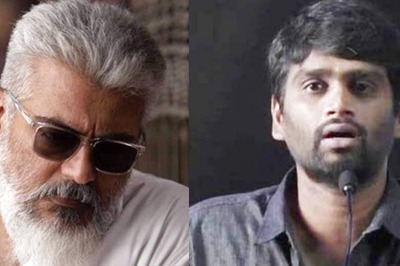
views
Politics in India is based on promoting contradictory concepts of welfare and development. This is necessitated due to the complex and multifaceted nature of the country’s political mosaic. Given the large population, variable socio-economic settings, and widespread regional and cultural differences, it has led to a situation where maintaining a balance between welfare and development is increasingly becoming an insurmountable task.
The results in the just concluded assembly polls in four states of Rajasthan, Madhya Pradesh, Chhattisgarh and Telangana make it amply clear that the BJP’s current success is based on a complicated weaving of welfare, development and cultural nationalism and it cannot be dislodged by just one issue, whether its corruption in defence deals, Hindutva or attempt to consolidate the backward castes through caste census.
Congress’ victory in Telangana and defeat in Rajasthan and Chhattisgarh could well indicate caste census proving to be its biggest handicap in the 2024 general elections. In the just concluded polls, Congress won Telangana with a dominant caste (Reddy) leader as its face and lost the two ruling states of Rajasthan and Chhattisgarh where its incumbent chief ministers were from the other backward classes.
Here, Prime Minister Narendra Modi’s counter, despite his belonging to a backward caste, was that there were just four ‘castes’ — the poor, the youth, women, and farmers — whose upliftment concerned him. This narrative pushed by the prime minister comes from the policies pushed by his party, interlaced into the intricacies of welfare and development.
While the Congress pushed the line of “to each according to their number” after conducting a nationwide caste census, the BJP pushed the satiate coverage of the Modi government’s welfare schemes. One of the manifestations of this spirit can be seen in the expanding network of Jan Aushadhi Kendras (the government-subsidised medicine shops).
The Narendra Modi government would go into the 2024 polls with about 20,000 Jan Aushadhi Kendras spread across 800 districts. To add to this is the five-year extension for Pradhan Mantri Garib Kalyan Anna Yojana (PMGKAY). This scheme aims to feed the poor by providing grain through the Public Distribution System, to the ration card holders and those identified by the Antyodaya Anna Yojana scheme. The PMGKAY provides 5 kg of rice or wheat (depending on the regional dietary preferences) per person and 1 kg of dal to each family holding a ration card. This has been projected as the biggest food security programme in the world. Its effective implementation has made the BJP harvest votes of the poor which the Congress could not do despite the Manmohan Singh government passing the Food Security Act.
This welfare spread can certainly be not countered by the Adani rant or a caste census carrot. Such schemes also deflate the Congress’ running criticisms of the BJP being a pro-rich and anti-poor, especially anti-farmer party. BJP’s rural vote share in the just concluded polls amply reflects that even the farmers are voting for the BJP or more pointedly, Narendra Modi’s guarantees.
This was best evident in Chhattisgarh where a paddy price war raged in the run-up to the polls. The Raman Singh government in 2018 was ousted on account of its inability to pay bonuses to paddy farmers after the first two years. This time, the BJP announced a higher paddy bonus and projected it as a ‘Modi guarantee’. While the Opposition called the Modi guarantees mere ‘jumlas’ (election promise), the rural voters in Chhattisgarh decided to take the offer.
To add to this is the concept of double-engine, the same party government at the Centre and in the states. This spurs the process of backing welfare with development. A combination of welfare and development efforts promotes long-term sustainability. While welfare programmes provide immediate relief and support, development initiatives create a foundation for sustained economic growth and progress.
Rather than basing their campaign on vocal growls, Congress’ campaign has to be programmed effectively on the data of the failings of the Modi government. Like best of the best governments in the world, it has not been possible for the Modi government too to deliver 100 per cent on its promises. Like the best of the delivery systems, many programmes would not have reached the last in the queue. It’s from here that the gauntlet has to be picked and not from the mere figures of a contaminated survey.
The writer is an author and president, Centre for Reforms, Development & Justice. Views expressed in the above piece are personal and solely that of the author. They do not necessarily reflect News18’s views.




















Comments
0 comment